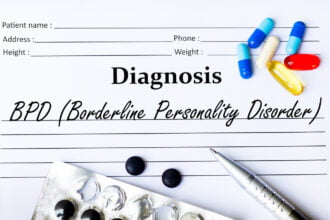When your partner is suffering from the side effects of low testosterone, it can be a challenging time not just for him, but for your relationship as a whole. Things beyond your control are changing, and it’s completely normal to feel frustrated, frightened and worried about what the future may hold.
The lowering of testosterone levels in men is something that begins to happen after the age of 30, it can also occur as the result of an injury or an infection. Despite this, many men find that the impact it has on their relationships and physical or mental health can take its toll. A non-existent libido, low semen volume, body hair loss, weight gain, irritability, mood swings and a decrease in muscle mass are enough to test even the most steadfast of relationships.
So, if your partner is suffering from low testosterone, what can be done? Well, first they should see a doctor and consider the possibility of testosterone therapy – you can find out more about testosterone therapy for men by clicking the link. And how can you help them?
Read on for 5 ways to be supportive of a partner with low testosterone.
Help them Get Help
You may want to get them to see a medical professional that will help them get over their issues. Programs like Craft Mens Clinic offer a lot of services for men with low testosterone. These services may be very helpful.
Educate yourself
So, your partner is feeling low, miserable, irritable and they seem to have no sexual interest whatsoever. It’s difficult not to blame yourself and worry that it’s you that’s the problem. But this is when anger and emotions run high and the medical reasoning behind your partner’s attitude becomes lost. Educating yourself on the symptoms of low testosterone and why they have the impact that they do will help you to understand why your partner is feeling this way. It can help you sympathize and place you both on the same page. When you know what they’re going through, you can help them more.
Go to relationship therapy
If you’re struggling to come to terms with the changes in your relationship, then all is not lost. Speak to a counsellor or head to relationship therapy instead. Speaking your mind in a controlled environment will help both of you vent any frustrations and create a level of understanding on both sides.
Communicate
Now is not the time to bottle up your frustrations and your feelings. Getting things out in the open will help you both through this tricky period. Take some time each week to talk candidly about your feelings and check in with each other. You’ll both feel great afterwards.
Experiment sexually
Your partner’s libido is currently suffering, which means you can also feel a little lonely. Instead of being frustrated at your partner, try something new instead. Being intimate with each other doesn’t always mean having sex. It can mean massages, kissing, touching or even enjoying deep, heartfelt conversations that will bring you closer together and strengthen your relationship even more.
Show your support
Doctors visits, hospital appointments, and therapy sessions. Simply being present at any appointments and showing your support will go a long way in strengthening your relationship and helping your partner through this difficult time.
Conclusion
Being supportive of your partner can make a big difference in their journey of low testosterone. Try these tips to help.
Potential title: 5 Ways To Be Supportive Of A Partner With Low Testosterone








